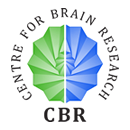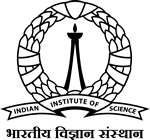Dr. Shweta Ramdas
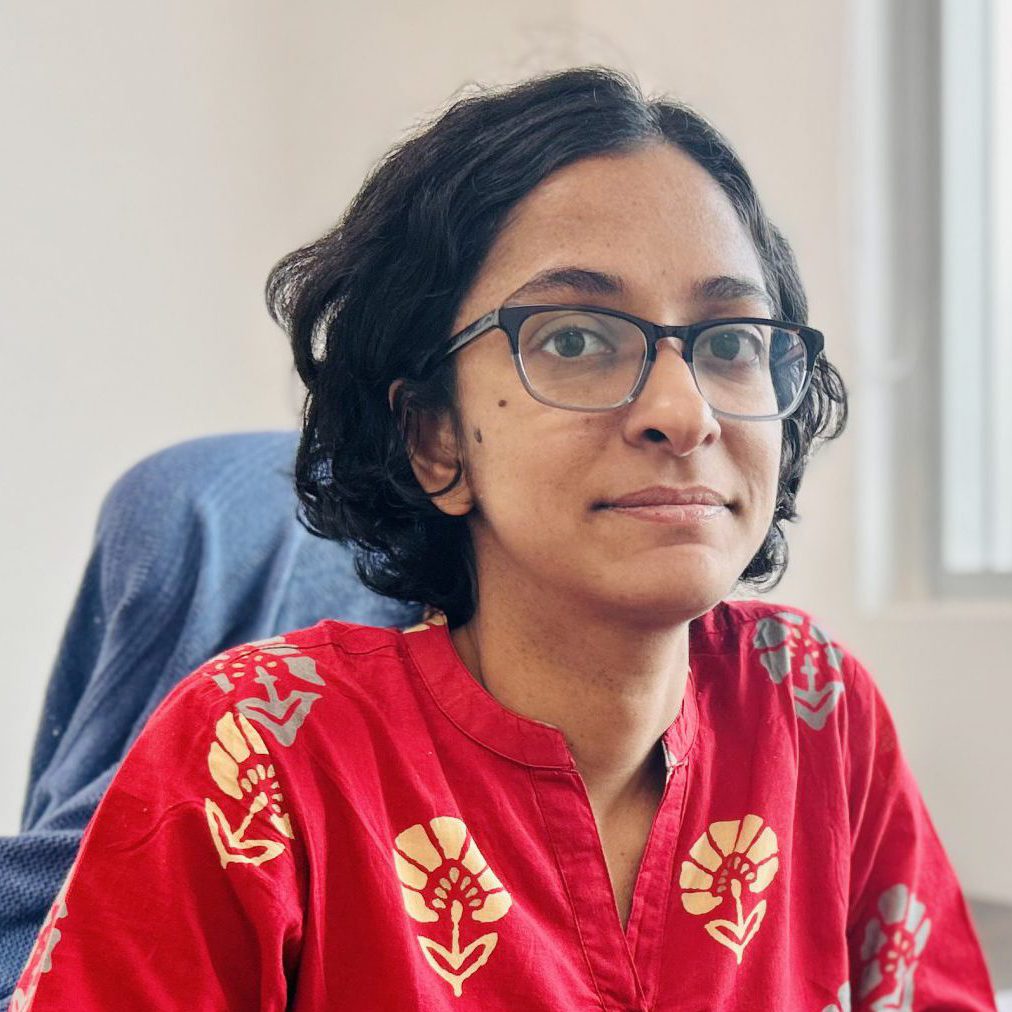
Dr Shweta Ramdas earned her Ph.D in Bioinformatics and an M.A. applied statistics in 2018, working in Jun Li’s lab at the University of Michigan. Her PhD work focused on the genetics of complex traits, focusing on bipolar disorder and aerobic capacity. She did her postdoctoral work in the Brown lab at the University of Pennsylvania, where her work focused on identifying and prioritizing regulatory variation in human diseases. Before joining CBR, Dr Ramdas was an Assistant Professor at Azim Premji University from December 2021-January 2023.
Dr Ramdas’ research is at the intersection of genetics and data science. It is motivated by exploring genetic variation in human populations. How is this variation shaped by evolution and population history? What is the functional role of this variation in regulating gene expression and human disease? Her group primarily uses bioinformatic and statistical approaches to address these questions.
My research lies at the intersection of genetics and data science. I am interested in human genetic variation and its biological function. How much genetic variation do we see in Indian populations, and how much of this is unique to the sub-continent? And how much of this genetic variation has any impact on biology?
I work on both arms of human genomics experimental design–family-based studies looking at rare variation, and large population cohorts that identify common trait-associated variation.
I have worked with the Million Veterans Program, the Global Lipids Consortium, the Genotype-Tissue Expression project, and various disease-focused consortia to identify trait-associated genes and signals. I collaborate with clinical geneticists to work on integrate approaches to identify genetic causes of disease. I also collaborate with biologists across disciplines to use bioinformatic approaches to understand questions about gene and genome function.
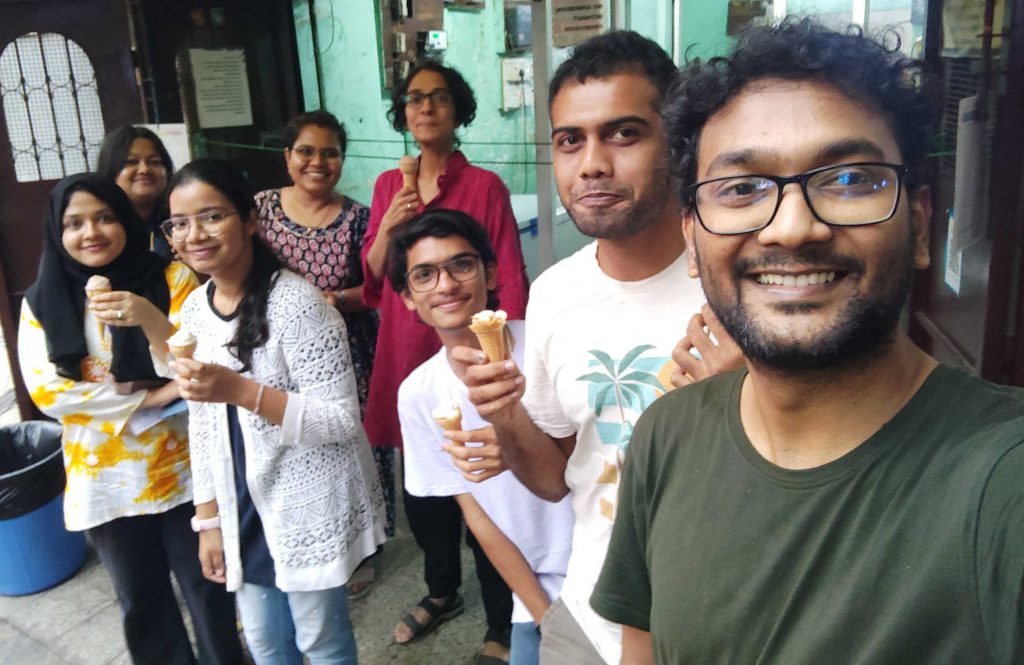
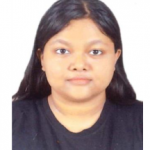 Debasrija Mondal (Data analyst, GenomeIndia)
Debasrija Mondal (Data analyst, GenomeIndia)
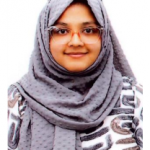
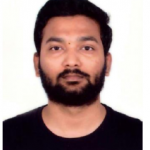

Alumni
 Amala K S
Amala K S
Project Intern
 Mani Kumar R
Mani Kumar R
Research Intern
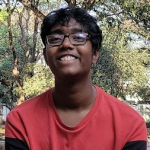 Kushal Aradhya
Kushal Aradhya
Summer Intern
- Kanoni S*, Graham SE*, Wang Y*, Surakka I*, Ramdas S*, Zhu X* et al. (2022). Implicating genes, pleiotropy and sexual dimorphism at blood lipid loci through multi-ancestry meta-analysis. Genome Biology 23, 268 (2022). https://doi.org/10.1186/s13059-022-02837-1 (co-first author)
- Ramdas S*, Judd J*, Graham SE*, Kanoni S*, Wang Y*, et al. (2022). A multi-layer functional genomic analysis to understand noncoding genetic variation in lipids. American Journal of Human Genetics 109(8):1366-1387. https://doi.org/10.1016/j.ajhg.2022.06.012.
- Vujkovic M*, Ramdas S*, et al. (2022) A multiancestry genome-wide association study of unexplained chronic ALT elevation as a proxy for nonalcoholic fatty liver disease with histological and radiological validation. Nature Genetics 54, 761–771 (2022). https://doi.org/10.1038/s41588-022-01078-z (co-first author)
- Ramdas S, Ozel AB, Holl K, Mandell M, Solberg Woods L, and Li JZ. (2018) Extended regions of mis-assembly in the rat reference genome. Scientific Data 6(1):39; doi: 10.1038/s41597-019-0041-6.
- Ramdas S, Pan Y, and Li JZ. (2018) Coverage-based detection of copy number alterations in mixed samples using DNA sequencing data: a theoretical framework for evaluating statistical power. bioRxiv
- Ramdas S and Li J. Application of next-generation sequencing in genetic studies of psychiatric disorders. (2018) (Book Chapter in ‘Primer of Psychiatric Genetics’).
- Kelly DE, Ramdas S, Ma R, Rawlings-Goss R, Grant G, Ranciaro A, Hirbo J, Beggs W, Yeager M, Chanock S, Nyambo T, Omar S, Meskel D, Belay G, Li H, Brown C, Tishkoff S. 2022. The Genetic and Evolutionary Basis of Gene Expression Variation in East Africans. bioRxiv https://doi.org/10.1101/2022.02.16.480765
- Graham SE, Clarke SL, Wu KHH, Kanoni S, Zajac GJM, Ramdas S, et al. (2021) The power of genetic diversity in genome-wide association studies of lipids. Nature 600, 675-679. (co-second)
- NM Ferraro, BJ Strober…Ramdas S, et al. (2020) Transcriptomic signatures across human tissues identify functional rare genetic variation. Science 369 (6509). doi: 10.1126/science.aaz5900.
- Khoriaty R, Ozel AB, Ramdas S, Ross C, Desch K, Shavit J, Everett L, Siemieniak D, Li JZ, Ginsburg D. (2019) Genome-Wide Linkage Analysis and Whole-Exome Sequencing Identifies an ITGA2B Mutation in a Family with Thrombocytopenia. British Journal of Haematology, 186: 574-579. doi:10.1111/bjh.15961.
- Muthu V, Rohacek A, Yao Y, Rakowiecki SM, Brown AS, Zhao YT, Meyers J, Won KJ, Ramdas S, Brown CD, Peterson K, Epstein D. (2019) Genomic architecture of Shh dependent cochlear morphogenesis. Development
- Yuan W, Liu Z, Lei W, Sun L, Yang H, Wang Y, Ramdas S, Dong X, Xu R, Cai H, Li JZ, Ke Y. (2017) Mutation landscape and intra-tumor heterogeneity of two MANECs of the esophagus revealed by multi-region sequencing. Oncotarget 8(41):69610-69621. doi: 10.18632/oncotarget.18678.
- Ma Q, Ozel AB, Ramdas S, McGee B, Khoriaty R, et al. (2014) Genetic variants in PLG, LPA and SIGLEC 14 as well as smoking contribute to plasma plasminogen levels. Blood 124(20).
- Tomar P, Bhatia A, Ramdas S, Diao L, Bhanot G, et al. (2013) Sporulation Genes Associated with Sporulation Efficiency in Natural Isolates of Yeast. PLoS ONE 8(7): e69765.
- Saxena V, Ramdas S, Ochoa CR, Wallace D, Bhide P, et al. (2012) Structural, Genetic, and Functional Signatures of Disordered Neuro-Immunological Development in Autism Spectrum Disorder. PLoS ONE 7(12): e48835.
- Koo Q, Khan AM, Jung KO, Ramdas S, Miotto O, Tan TW, Brusic V, Salmon J and August TJ. (2009). Conservation and Variability of West Nile Virus Proteins. PLoS One. 4(4):e532.
We are looking for PhD students and postdocs.
We welcome students with backgrounds in biology, engineering, computer science, statistics, or related fields. If you are interested in working with me for an undergraduate thesis project/masters thesis, please get in touch over email with a brief description of why you are interested in joining my group, your coursework, and whether you have experience in programming. Students who can commit to at least 9 months in the lab will be preferred.
What students can expect from me (inspired by Ziyue Gao)
- I will provide rigorous training in statistics, bioinformatics and human genomics
- I will work with you to help you identify a question that drives you
- I will help you develop your writing, presenting, and leadership skills (a key both in academia and outside academia).
- I will meet with you weekly to troubleshoot, prioritize next steps, and help keep projects moving.
- I will help move your project from the first draft to a paper/conference presentation
- I will be supportive of your career goals and will work with you to find the best ways to reach them.
Centre for Brain Research
Indian Institute of Science Campus
CV Raman Avenue
Bangalore 560012. India.
Email: shwetaramdas[at]cbr-iisc.ac.in
Telephone: Office +91 80 2293 3588
